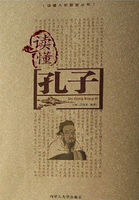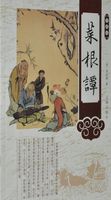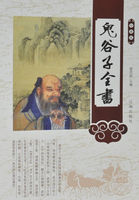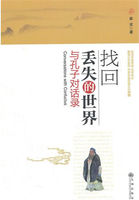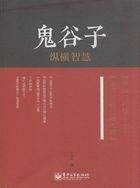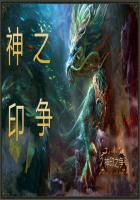Things are said to be named "equivocally" when, though they have a common name, the definition corresponding with the name differs for each. Thus, a real man and a figure in a picture can both lay claim to the name "animal"; yet these are equivocally so named, for, though they have a common name, the definition corresponding with the name differs for each. For should any one define in what sense each is an animal, his definition in the one case will be appropriate to that case only.
On the other hand, things are said to be named "univocally" which have both the name and the definition answering to the name in common. A man and an ox are both "animal", and these are univocally so named, inasmuch as not only the name, but also the definition, isthe same in both cases: for if a man should state in what sense eachis an animal, the statement in the one case would be identical withthat in the other.
Things are said to be named "derivatively", which derive their name from some other name, but differ from it in termination. Thus the grammarian derives his name from the word "grammar", and the courageous man from the word "courage".
Forms of speech are either simple or composite. Examples of the latter are such expressions as "the man runs", "the man wins"; of theformer man , ox, runs , wins.
Of things themselves some are predicable of a subject, and are never present in a subject. Thus "man" is predicable of the individual man, and is never present in a subject.
By being "present in a subject" I do not mean present as parts are present in a whole, but being incapable of existence apart from the said subject.
Some things, again, are present in a subject, but are never predicable of a subject. For instance, a certain point of grammatical knowledge is present in the mind, but is not predicable ofany subject; or again, a certain whiteness may be present in thebody (for colour requires a material basis), yet it is neverpredicable of anything.
Other things, again, are both predicable of a subject and present in a subject. Thus while knowledge is present in the human mind, it is predicable of grammar.
There is, lastly, a class of things which are neither present in a subject nor predicable of a subject, such as the individual man or the individual horse. But, to speak more generally, that which is individual and has the character of a unit is never predicable of a subject. Yet in some cases there is nothing to prevent such being present in a subject. Thus a certain point of grammatical knowledge is present in a subject.
When one thing is predicated of another, all that which is predicable of the predicate will be predicable also of the subject. Thus, "man" is predicated of the individual man; but "animal" is predicated of "man"; it will, therefore, be predicable of the individual man also: for the individual man is both "man" and "animal".
If genera are different and co-ordinate, their differentiae arethemselves different in kind. Take as an instance the genus "animal" and the genus "knowledge". "With feet", "two-footed", "winged", "aquatic", are differentiae of "animal"; the species of knowledge are not distinguished by the same differentiae. One species of knowledge does not differ from another in being "two-footed".
But where one genus is subordinate to another, there is nothing to prevent their having the same differentiae: for the greater class is predicated of the lesser, so that all the differentiae of the predicate will be differentiae also of the subject.
Expressions which are in no way composite signify substance, quantity, quality, relation, place, time, position, state, action, or affection. To sketch my meaning roughly, examples of substance are "man" or "the horse", of quantity, such terms as "two cubits long" or "three cubits long", of quality, such attributes as "white", "grammatical". "Double", "half, "greater", fall under the category of relation; "in a the market place", "in the Lyceum", under that of place; "yesterday", "last year", under that of time. "Lying","sitting", are terms indicating position, "shod", "armed", state;"to lance", "to cauterize", action; "to be lanced", "to becauterized", affection.
No one of these terms, in and by itself, involves an affirmation; it is by the combination of such terms that positive or negative statements arise. For every assertion must, as is admitted, be either true or false, whereas expressions which are not in any way composite such as "man", "white", "runs", "wins", cannot be either true or false.
Substance, in the truest and primary and most definite sense of the word, is that which is neither predicable of a subject nor present in a subject; for instance, the individual man or horse. But in a secondary sense those things are called substances within which, as species, the primary substances are included; also those which, as genera, include the species. For instance, the individual man is included in the species "man", and the genus to which the species belongs is "animal"; these, therefore-that is to say, the species "man" and the genus "animal,-are termed secondary substances.
It is plain from what has been said that both the name and the definition of the predicate must be predicable of the subject. Forinstance, "man" is predicted of the individual man. Now in this casethe name of the species man" is applied to the individual, for we use the term "man" in describing the individual; and the definition of "man" will also be predicated of the individual man, for the individual man is both man and animal. Thus, both the name and the definition of the species are predicable of the individual.
With regard, on the other hand, to those things which are present in a subject, it is generally the case that neither their name nor their definition is predicable of that in which they are present. Though, however, the definition is never predicable, there is nothing in certain cases to prevent the name being used. For instance, "white" being present in a body is predicated of that in which it is present, for a body is called white: the definition, however, of the colour white" is never predicable of the body.

